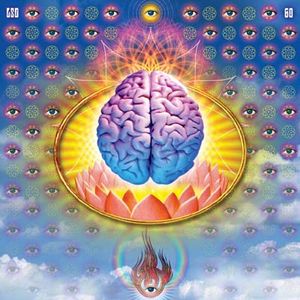Mystical Minds?
Using the human nervous system as a representational medium, are there parts of the universe that are innately unknowable to us- are there realities that we can experience but not objectively measure? Is spirituality real, or a man-made delusion to justify ambiguous emotions and guide behavior? Is consciousness an emergent property or does it extend beyond?
These are timeless ontological questions that have been posed by both philosophers and the common man for centuries. But only recently has the new field of neurotheology, the study of correlations between neural phenomena and subje ctive experiences of spirituality, emerged on the scene to advance our understanding of what the brain undergoes during religious practices. Whereas before we could only rely on logic and speculation in an attempt to tackle some of these controversial issues, today neuroscientists are beginning to uncover substantial information regarding the relationship between brain activity and “the feeling of God”.
ctive experiences of spirituality, emerged on the scene to advance our understanding of what the brain undergoes during religious practices. Whereas before we could only rely on logic and speculation in an attempt to tackle some of these controversial issues, today neuroscientists are beginning to uncover substantial information regarding the relationship between brain activity and “the feeling of God”.
Scientists have long been intrigued by claims of mystical encounters. Though these assertions may seem to be all too uncommon and even downright outlandish in an increasingly “secular” nation, still a survey by the Pew Form on Religion and Public Life demonstrated that nearly half of American adults today have had what they consider a “religious” or “mystical experience” of some kind. In order to investigate the biological basis of these obscure episodes, scientists first explored the effects of psychedelic drugs, which have a long history of traditional use in religion. Since users of psychedelics often report of the drug’s ability to elicit a sense of the spiritual, as well as promote mental healing, researchers sought empirical support for the notion that psychedelic drugs could facilitate “religious experiences”.
In fact, the first major study of psychedelics and spirituality took place on Good Friday, 1962 in the basement of Marsh Chapel right here at Boston University. In The Marsh Chapel Expe riment, Harvard researchers
riment, Harvard researchers administered LSD to ten divinity students to discover whether the sacred environment combined with the drug would educe a spiritual experience. Nine out of the ten reported a “profound sense of spiritual awe” and afterward similar research was conducted at other prominent universities until the LSD experiments were prohibited by the US government in the 70’s.
administered LSD to ten divinity students to discover whether the sacred environment combined with the drug would educe a spiritual experience. Nine out of the ten reported a “profound sense of spiritual awe” and afterward similar research was conducted at other prominent universities until the LSD experiments were prohibited by the US government in the 70’s.
Current research suggests that the serotonin system is the key player in such mystical experiences. The neurotransmitter serotonin (5-HT) has complex behavioral effects, specifically in the role it plays in regulation of mood and arousal. Several hallucinogenic drugs produce their effects by interacting with serotonergic transmission, and LSD is a direct agonist for postsynaptic 5HT2a receptors in the forebrain. Some studies now are replicating the ones from the 1960s in which patients with end-stage cancer are given LSD to see if they’re convinced that life exists beyond death. The research raises the question: is God a delusion created by brain chemistry, or is brain chemistry a necessary conduit for people to reach God?
Andrew Newberg, Director of Research at the Myrna Brind Center for Integrative Medicine at Thomas Jefferson University Hospital, and author of “Why God Won’t Go Away: Brain Science & The Biology of Belief” offers his own insight: “It comes down to belief systems,” When a religious person looks at our brain scans, they say, ‘Ah, that’s where God has an interaction with me.’ An atheist looks at the data and says, ‘There it is. It’s nothing more than what’s in your brain.’ Even if I do a brain scan of somebody who tells me that they’ve seen God, that scan only tells me what their brain was doing when they had that experience, and it doesn’t tell me whether or not they actually did see God.”
Professor Orrin Devinsky, director of The Comprehensive Epilepsy Center at NYU Langone Medical, informs that sufferers of epilepsy often claim to have seen or heard religious figures- and that epileptic activity takes place in the temporal lobe, a key center of emotions and memory. Neurologists now propose that they’ve found this to be the anatomical center where we perceive our ‘spirituality’. However, Devinsky also reveals himself to not be a complete reductionist as he gives this analogy in an interview on the issue of neurotheology: “If two people were together involved in an intimate conservation and realized that they loved each other, and experienced that emotion we refer to as love, there would be a change in their brain states, probably in the temporal lobe – however, does that negate the presence of true love between them? Of course not. When you get into spirituality, as a scientist, it becomes extremely difficult to say anything other than ‘it’s possible’.”
Institute For the Biocultural Study of Religion
NPR: This Is Your Brain On Religion
Andrew Newberg & Neurotheology